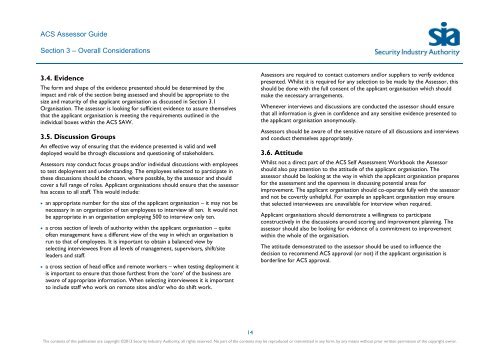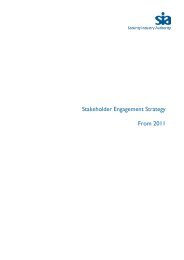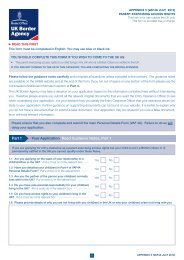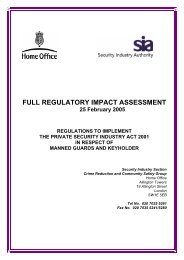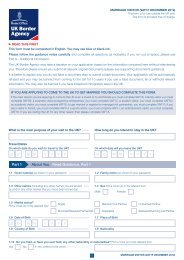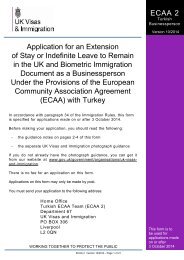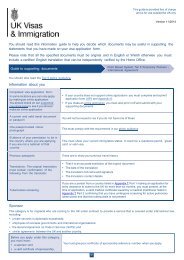ACS Assessor Guide - Security Industry Authority
ACS Assessor Guide - Security Industry Authority
ACS Assessor Guide - Security Industry Authority
You also want an ePaper? Increase the reach of your titles
YUMPU automatically turns print PDFs into web optimized ePapers that Google loves.
<strong>ACS</strong> <strong>Assessor</strong> <strong>Guide</strong>Section 3 – Overall Considerations3.4. EvidenceThe form and shape of the evidence presented should be determined by theimpact and risk of the section being assessed and should be appropriate to thesize and maturity of the applicant organisation as discussed in Section 3.1Organisation. The assessor is looking for sufficient evidence to assure themselvesthat the applicant organisation is meeting the requirements outlined in theindividual boxes within the <strong>ACS</strong> SAW.3.5. Discussion GroupsAn effective way of ensuring that the evidence presented is valid and welldeployed would be through discussions and questioning of stakeholders.<strong>Assessor</strong>s may conduct focus groups and/or individual discussions with employeesto test deployment and understanding. The employees selected to participate inthese discussions should be chosen, where possible, by the assessor and shouldcover a full range of roles. Applicant organisations should ensure that the assessorhas access to all staff. This would include: an appropriate number for the size of the applicant organisation – it may not benecessary in an organisation of ten employees to interview all ten. It would notbe appropriate in an organisation employing 500 to interview only ten. a cross section of levels of authority within the applicant organisation – quiteoften management have a different view of the way in which an organisation isrun to that of employees. It is important to obtain a balanced view byselecting interviewees from all levels of management, supervisors, shift/siteleaders and staff. a cross section of head office and remote workers – when testing deployment itis important to ensure that those furthest from the ‘core’ of the business areaware of appropriate information. When selecting interviewees it is importantto include staff who work on remote sites and/or who do shift work.<strong>Assessor</strong>s are required to contact customers and/or suppliers to verify evidencepresented. Whilst it is required for any selection to be made by the <strong>Assessor</strong>, thisshould be done with the full consent of the applicant organisation which shouldmake the necessary arrangements.Whenever interviews and discussions are conducted the assessor should ensurethat all information is given in confidence and any sensitive evidence presented tothe applicant organisation anonymously.<strong>Assessor</strong>s should be aware of the sensitive nature of all discussions and interviewsand conduct themselves appropriately.3.6. AttitudeWhilst not a direct part of the <strong>ACS</strong> Self Assessment Workbook the <strong>Assessor</strong>should also pay attention to the attitude of the applicant organisation. Theassessor should be looking at the way in which the applicant organisation preparesfor the assessment and the openness in discussing potential areas forimprovement. The applicant organisation should co-operate fully with the assessorand not be covertly unhelpful. For example an applicant organisation may ensurethat selected interviewees are unavailable for interview when required.Applicant organisations should demonstrate a willingness to participateconstructively in the discussions around scoring and improvement planning. Theassessor should also be looking for evidence of a commitment to improvementwithin the whole of the organisation.The attitude demonstrated to the assessor should be used to influence thedecision to recommend <strong>ACS</strong> approval (or not) if the applicant organisation isborderline for <strong>ACS</strong> approval.14The contents of this publication are copyright ©2013 <strong>Security</strong> <strong>Industry</strong> <strong>Authority</strong>, all rights reserved. No part of the contents may be reproduced or transmitted in any form, by any means without prior written permission of the copyright owner.


